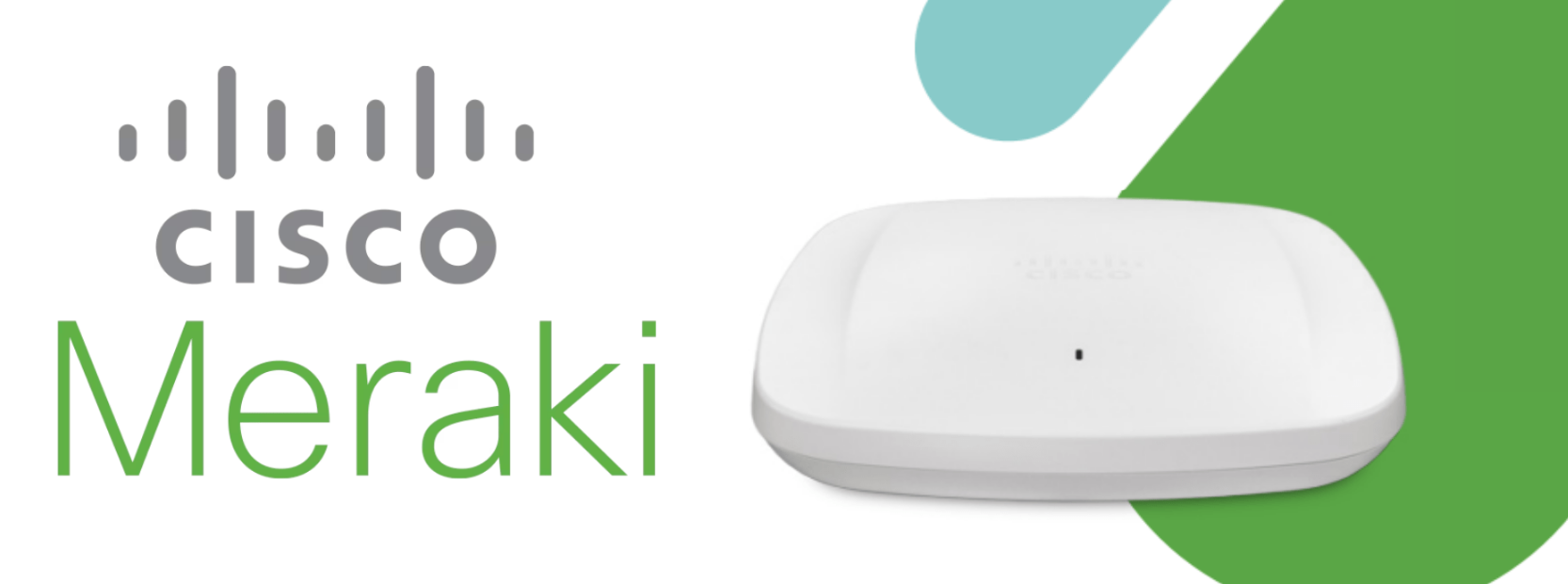Reliable and secure wireless networks are crucial for businesses of all sizes. A strong network ensures smooth operations, enhances productivity, and supports the increasing number of connected devices in the workplace. It also enables seamless communication and collaboration between employees, whether they are in the office or working remotely.
Moreover, secure networks protect sensitive business data from cyber threats. With the rise in cyberattacks, businesses cannot afford to compromise on network security. Investing in robust wireless solutions like Meraki and Meraki Go helps businesses safeguard their data and maintain the trust of their customers and partners. But what is better for you? Read on for information on Meraki Go vs. Meraki!

Meraki, a Cisco product line, is designed for businesses that require advanced networking solutions. It offers a comprehensive range of devices, including wireless access points, switches, security appliances, and more. These devices are managed through a centralized dashboard, allowing IT https://www.stratusinfosystems.com/wp-content/uploads/2018/01/123-2-2.jpgistrators to monitor and control their network from anywhere.
The key features of Meraki include robust security, detailed analytics, and seamless scalability. It is suitable for large enterprises, educational institutions, and organizations with complex networking needs. Meraki’s cloud-based management system ensures that businesses can easily expand their network as they grow, without compromising on performance or security.
Meraki Go is another offering from Cisco, tailored specifically for small businesses and home offices. It provides an affordable and easy-to-use wireless solution that includes wireless access points, security gateways, and network switches. Unlike Meraki, Meraki Go is designed to be simple to set up and manage, making it ideal for businesses without dedicated IT staff.
The Meraki Go app allows users to control their network from their smartphones, offering features like guest Wi-Fi, usage limits, and network insights. This simplicity does not come at the expense of performance, as Meraki Go delivers reliable connectivity and essential security features suitable for small business environments.
When comparing Meraki Go vs. Meraki, it is crucial to take several factors into consideration:
Meraki is aimed at larger organizations that require robust and scalable network solutions. It is ideal for enterprises, educational institutions, and large-scale retail operations. These businesses often have complex networking requirements, including multiple locations, high user density, and the need for detailed network analytics.
On the other hand, Meraki Go targets small businesses, home offices, and startups. It is perfect for cafes, small retail stores, and professional offices that need reliable Wi-Fi without the complexity and cost associated with enterprise-level solutions. Meraki Go’s ease of use makes it accessible to business owners and managers who may not have technical expertise.
Meraki offers a wide range of advanced features designed to meet the needs of larger organizations. These include Layer 7 application traffic shaping and advanced security features like intrusion detection and prevention, malware protection, and VPN support. The Meraki dashboard provides detailed network analytics and reporting, helping IT teams optimize performance and troubleshoot issues efficiently.
Meraki Go, while simpler, still provides essential features for small businesses. It includes guest Wi-Fi with customizable splash pages, basic traffic shaping to ensure optimal performance, and network usage insights to monitor and manage connected devices. Security features such as automatic firmware updates and the ability to block malicious sites are also included.
Another key difference is in the management interface. Meraki’s cloud-based dashboard offers extensive control and customization options, suitable for IT professionals. In contrast, Meraki Go is managed via a mobile app with an intuitive and user-friendly interface that is easy to navigate for non-technical users.
In terms of hardware, Meraki devices tend to be more powerful and versatile. They support a broader range of use cases and higher performance requirements. Meraki Go devices are designed with simplicity in mind. They offer the essential functionalities needed for small business environments without the additional complexity.
Meraki operates on a subscription-based pricing model. Businesses pay for licenses to access the cloud management platform and receive ongoing support and updates. This model is cost-effective for larger organizations that benefit from Meraki’s advanced features and scalability.
Meraki Go, however, is designed to be more affordable for small businesses. It has a one-time purchase cost for the hardware, with optional subscriptions for enhanced support and additional features. This pricing structure makes Meraki Go an attractive option for budget-conscious businesses looking for reliable and easy-to-manage networking solutions.
Meraki is suitable for a variety of complex use cases. For example, large enterprises with multiple branches can use Meraki to create a unified network that is easy to manage and scale. Educational institutions can benefit from Meraki’s advanced security features and detailed analytics to ensure a safe and efficient learning environment. Retail chains can use Meraki to provide seamless Wi-Fi across multiple locations and gain insights into customer behavior through network analytics.
Meraki Go is perfect for smaller-scale use cases. A café can use Meraki Go to offer guests Wi-Fi with a branded splash page. A small retail store can use Meraki Go to manage network traffic and ensure that payment systems and other critical applications have priority. A home office can benefit from easy setup and management, providing reliable connectivity for remote work without the need for technical expertise.
Both Meraki and Meraki Go can be used in hospitality settings, but the scale of the deployment would differ. Meraki would be suited for large hotels with multiple conference rooms and high guest traffic, while Meraki Go would be ideal for boutique hotels or bed-and-breakfasts that need a simple and reliable Wi-Fi solution.
Setting up Meraki involves a few more steps due to its advanced features. IT professionals typically handle the installation, which includes configuring devices via the Meraki dashboard, setting up security protocols, and integrating the network with existing systems. Despite the complexity, the cloud-based management simplifies ongoing maintenance and scaling.
Meraki Go, in contrast, is designed for simplicity. The setup process can be completed in minutes using the Meraki Go app. Users can follow guided instructions to connect devices, set up guest Wi-Fi, and configure basic network settings.
Meraki’s cloud-based dashboard is a powerful tool for IT https://www.stratusinfosystems.com/wp-content/uploads/2018/01/123-2-2.jpgistrators. It offers real-time monitoring, detailed analytics, and advanced configuration options. The dashboard allows for remote management of all network devices, making it easy to deploy updates, troubleshoot issues, and optimize performance.
The Meraki Go app provides a more simplified management experience. It includes essential features like network monitoring, device management, and usage insights, all accessible from a smartphone. This user-friendly interface ensures that small business owners can easily manage their network without needing technical expertise.
In conclusion, when comparing Meraki Go vs. Meraki, both offer valuable solutions for different types of businesses. Meraki’s advanced features and scalability make it ideal for larger organizations, while Meraki Go’s simplicity and affordability are perfect for small businesses and home offices. Understanding the differences between Meraki and Meraki Go can help businesses choose the right solution to meet their networking needs.

Stay informed about our newest releases and updates